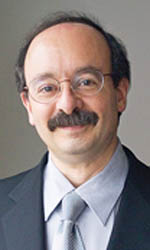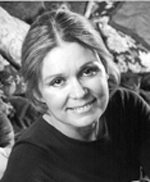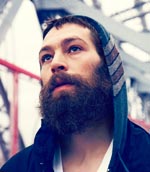The Assembly Series annually serves up topics for almost every appetite, and this spring the series offers speakers from A to Z. Representing the broad interests of the Washington University community, the Assembly Series begins Wednesday, Jan. 27, with environmentalist Amory Lovins and concludes April 21 with playwright and director Mary Zimmerman.
As always, Assembly Series programs are free and open to the public, although space may be limited for specific programs.
The schedule no longer will be printed. Information regarding programs will be available on the Web page assemblyseries.wustl.edu and announced in the Record.
The spring schedule:
Jan. 27 Amory Lovins
 At 11 a.m. Wednesday, Jan. 27, in Graham Chapel, environmental expert Amory Lovins will give the annual Arthur Holly Compton Lecture titled “Reinventing Fire: The Profitable Transition From Oil and Coal to Efficiency and Renewables.”
At 11 a.m. Wednesday, Jan. 27, in Graham Chapel, environmental expert Amory Lovins will give the annual Arthur Holly Compton Lecture titled “Reinventing Fire: The Profitable Transition From Oil and Coal to Efficiency and Renewables.”
Deemed by many as an environmental visionary, Lovins has advocated for finding and using alternative energy sources for more than three decades. As co-founder, chair and chief scientist of the Rocky Mountain Institute, a leading environmental think tank, he is widely recognized as one of the world’s premiere authorities on energy conservation and innovation.
His concept of a “softer path,” introduced in a 1976 Foreign Affairs article advocating for the investigation of new and renewable energy resources, served as an important foundation for environmentalists and entrepreneurs who are turning ideas into real innovations.
As he notes in his most recent book, “Winning the Oil Endgame,” technological inventions such as modern biofuels and saved natural gas now make it possible to displace U.S. oil production by the 2040s, at a greatly reduced cost.
Because his expertise covers oil dependency, national security and economic stability in addition to climate change, Lovins serves as a consultant to world leaders, major corporations and government entities such as the Department of Defense.
In last year’s Time magazine, he was identified as one of 100 persons who most affect the world. Lovins also has authored or co-authored more than 20 books and hundreds of articles.
His major awards and prizes include a MacArthur Fellowship; Time magazine’s 2000 Heroes of the Planet Award; the Nissan Prize (given for inventing ultra-light hybrid cars); the World Technology Award; and Popular Mechanics magazine’s Breakthrough Leadership Award. He also is a fellow of the American Association for the Advancement of Science.
Feb. 4 Robert Freling
Few things are more essential to the estimated two billion people living in the developing world than access to clean, affordable electricity. Robert Freling, executive director of the Solar Electric Light Fund (SELF), has made it his mission to deliver clean, renewable electricity to villagers around the world.
Under his leadership, SELF is transforming the lives of millions who have gone from no reliable energy to affordable green power that then advances other basic needs, such as clean water, education, health-care and economic empowerment.
Freling’s talk at 5 p.m. Feb. 4 in Graham Chapel also will serve as the keynote address for the Skandalaris Center’s Olin Cup Competition, which provides capital for new entrepreneurial innovations.
Feb. 10 Edward Larson
Historian and Pulitzer Prize-winning writer Edward Larson, J.D., Ph.D., will present the Thomas Hall Lecture at 4 p.m. Feb. 10 in Louderman Hall, Room 458.
The talk is titled “From Dayton to Dover: A Brief History of the Evolution Teaching Controversy in the U.S.”
Larson’s books, which mainly deal with evolution and the current and historical conflicts between science and religion, are regarded as both scholarly and highly readable for the general population. “Summer for the Gods: The Scopes Trial and America’s Continuing Debate Over Science and Religion” won the 1998 Pulitzer Prize in history.
Feb. 17 Geoff Marcy
As one of the world’s most successful planet hunters, Geoff Marcy has come closer than most astronomers to finding some answers. However, Marcy acknowledges that Earth-like planets and extraterrestrial life continue to elude us.
In his presentation for the annual Ferguson Lecture, “The Search for Habitable Worlds and Life in the Universe,” at 11 a.m. Feb. 17 in Graham Chapel, he will expound on the status of a worldwide race to identify habitable worlds around other stars, with help from the development of extraordinarily powerful telescopes.
Feb. 22 Carolyn Bynum
Throughout her distinguished career, medieval historian Carolyn Bynum has been examining the language, imagery and concept of identity in texts of the European Middle Ages.
Drawing upon the disciplines of religion, art, philosophy and anthropology, she examines the attitudes of men and women living during this period.
Her talk, sponsored by the Interdisciplinary Project in the Humanities (IPH), “Weeping Statues and Bleeding Bread: Miracles and their Theorists,” will be held at 5 p.m. Feb. 22 in the Women’s Building Formal Lounge.
Bynum’s lecture is one of three being presented by the IPH with the overarching theme of the Materiality of Devotion in the Late Middle Ages. For more information, visit iph.wustl.edu.
March 2 Kip Fulbeck
Kip Fulbeck uses art, film, photographs and words to explore the meaning of racial identity for those whose ethnic backgrounds do not fit into one, neat category.
Fulbeck’s own mixed heritage is Cantonese, English, Irish and Welsh, which qualifies him for the term “Hapa,” the once derogatory slang word for “half,” as in half Asian or Pacific Islander. One of his most lasting contributions to the national discussion on race and identity is the Hapa Project, an exhibition (and book) featuring more than 1,200 portraits.
Portions of Fulbeck’s Hapa Project are displayed in the Missouri History Museum’s new exhibition, “RACE: Are We So Different?” which runs through April 4. The museum is co-sponsoring Fulbeck’s talk, “What Are You? The Changing Face of America,” at 5 p.m. March 2 in Graham Chapel. At 7 p.m. March 5, Fulbeck will appear at the museum. For information on the exhibition, call (314) 746-4599 or visit mohistory.org/exhibitions/special/2850.
March 3 Gloria Steinem
 Feminist icon, social justice advocate and writer Gloria Steinem will present a lecture at 4 p.m. March 3 in Graham Chapel.
Feminist icon, social justice advocate and writer Gloria Steinem will present a lecture at 4 p.m. March 3 in Graham Chapel.
For nearly half a century, Steinem has been at the forefront of the women’s rights movement in America. Her influence on American culture has been far-reaching and included the creation of Ms. Magazine and Take Your Daughter to Work Day.
More recently, her advocacy has focused on the global sex trade problem, which will be the subject of her lecture, “Sex Trafficking and the New Abolitionists.”
March 18 Matisyahu
 Acclaimed singer/songwriter Matisyahu will make a special appearance at Washington University at 4 p.m. March 18 in Graham Chapel. The program will feature an acoustic performance as well as a discussion about his development as an artist, his latest record, “Light,” and the fusion of his philosophies and various musical styles.
Acclaimed singer/songwriter Matisyahu will make a special appearance at Washington University at 4 p.m. March 18 in Graham Chapel. The program will feature an acoustic performance as well as a discussion about his development as an artist, his latest record, “Light,” and the fusion of his philosophies and various musical styles.
Matisyahu is a cultural icon, whose unique blend of Hasidic, reggae and hip-hop music has sold millions of records and garnered fans around the world. Seating will be limited. Check the Assembly Series Web page for information.
March 24 Naomi Klein
 Since writing the 2000 best seller “No Logo: Taking Aim at the Brand Bullies” and following it up with the explosive and equally popular 2007 book “Shock Doctrine: The Rise of Disaster Capitalism,” Naomi Klein has become a symbol for the anti-globalization movement.
Since writing the 2000 best seller “No Logo: Taking Aim at the Brand Bullies” and following it up with the explosive and equally popular 2007 book “Shock Doctrine: The Rise of Disaster Capitalism,” Naomi Klein has become a symbol for the anti-globalization movement.
Klein’s talk, “The Present and Future of Capitalism,” will be the Chancellor’s Fellows Lecture at 11 a.m. March 24 in Graham Chapel. The discussion will continue at 2 p.m. with a panel in the Women’s Building Lounge.
April 8 James Lennox
James Lennox, this year’s James and Penelope Biggs Lecturer in the Classics, is a historian and philosopher of science. A pre-eminent scholar in the field of Aristotle’s philosophy and biology, he also is an expert on Charles Darwin and contemporary philosophy of biology.
Lennox is the author of several books, including “Aristotle’s Philosophy of Biology: Studies in the Origins of Life Science.” The lecture, “William Harvey: Enigmatic Aristotelian of the Scientific Revolution,” will be held at 4 p.m. April 8 in a location to be announced.
April 20 Robert Thach
 WUSTL biologist Robert Thach, Ph.D., will present the annual Phi Beta Kappa/Sigma Xi Lecture at 4 p.m. April 20 in Graham Chapel.
WUSTL biologist Robert Thach, Ph.D., will present the annual Phi Beta Kappa/Sigma Xi Lecture at 4 p.m. April 20 in Graham Chapel.
The former dean of the Graduate School of Arts & Sciences is a distinguished scientist whose research interests include disease epidemics. His talk “An Emerging Tick-borne Disease in the Central United States: Human Monocytic Ehrlichiosis” will reflect his current work, which seeks to understand the ecology and epidemiology of vector-borne illnesses associated with ticks.
April 21 Mary Zimmerman
Tony Award-winning playwright and director Mary Zimmerman possesses a love for literature, as many of her theatrical works on stage can attest. However, she especially is partial to ancient stories that explore the big questions, such as Ovid’s “Metamorphoses.”
Her staging of “Metamorphoses,” in which Zimmerman transformed Ovid’s myths of power, love and death for contemporary consumption, earned her a Tony in 2002.
The Performing Arts Department (PAD) in Arts & Sciences will present “Metamorphoses” this spring and Zimmerman will give the annual Women’s Society Lecture. Her talk “Bodies I Have in Mind: Adapting Ancient Texts for the Stage” will take place at 11 a.m. April 21 in Graham Chapel.
Other speakers may be added in the near future. Check the Assembly Series Web site for updated information at assemblyseries.wustl.edu or call (314) 935-4620.